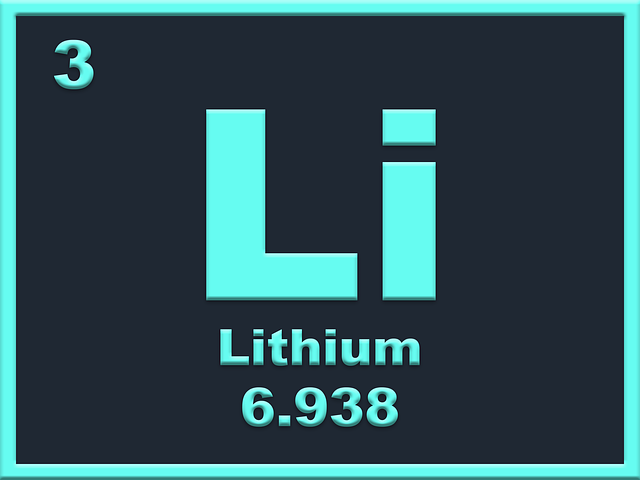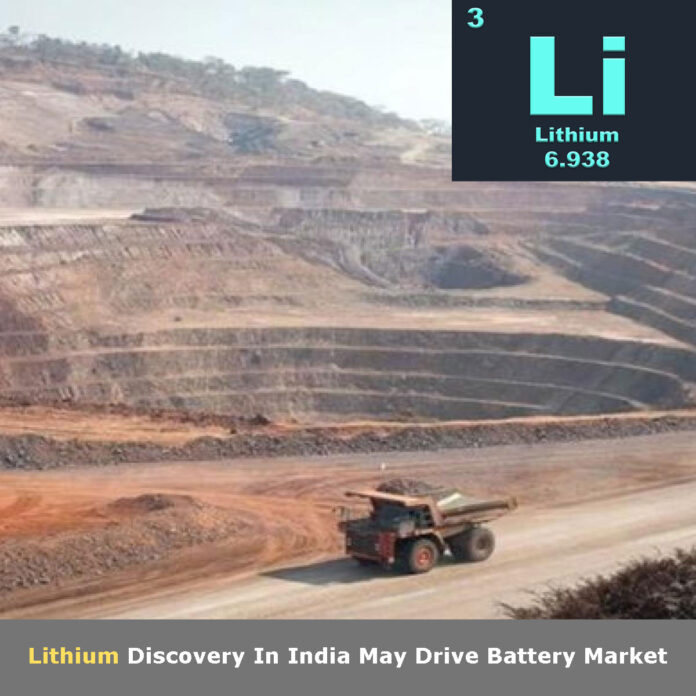Jammu and Kashmir is one of the major regions in India where lithium reserves have been found. According to the Geological Survey of India, the region has an estimated lithium reserve of 5.9 million tones.
What Is Lithium?

Lithium referred as white gold of 21st century.
It is a chemical element with the symbol Li and atomic number 3. A soft, silvery-white metal that belongs to the alkali metal group of elements. It is highly reactive and flammable, and it is the lightest of all metals and the least dense solid element.
Lithium has several industrial and technological applications. It is commonly used in the production of lithium-ion batteries, which are used to power a wide range of electronic devices, from mobile phones and laptops to electric vehicles and renewable energy systems. It is also used in the production of ceramics, glass, and lubricants, and it has applications in the pharmaceutical industry.
Due to its high energy density and low weight, lithium-ion batteries have become increasingly important in the context of the transition to a low-carbon economy, as they are seen as a key technology for storing renewable energy and powering electric vehicles. The demand for lithium has therefore increased significantly in recent years, and efforts are underway to explore and develop new sources.
How Reserves Are Important For India?
Lithium reserves have become increasingly important in recent years due to the growing demand for lithium-ion batteries, which are used to power electric vehicles and store renewable energy. India has set ambitious targets to increase the adoption of electric vehicles, which has led to a greater focus on securing domestic sources of it.
Overall, the reserves in Jammu and Kashmir hold significant potential for India’s electric vehicle and renewable energy sectors, and efforts are underway to harness this potential.
How Does Lithium Important In Geopolitics?
EV is the future and lithium is the base to it. According to scientists there is no better alternative for lithium in next 10-15 years due to its quality of being light in weight, energy efficient and higher energy density. So the country which have this source can grow in global politics. For now, only following countries have been found with big reserves:
United States: 6.8 million tones
Australia: 6.3 million tones
India: 5.9 million tones
China: 4.5 million tones
Moreover, the lithium reserves in Jammu and Kashmir are of good quality and suitable to produce batteries. This could potentially make India a more attractive destination for lithium-ion battery manufacturers, as they would be able to source high-quality lithium locally, reducing transportation costs and supply chain risks.
They are a valuable resource for India’s growing electric vehicle and renewable energy sectors.
Challenges
As for now, India has raw white gold but still we can’t use it for at least 5 to 10 years by our own. Reason is not having technology and infrastructure for the same. It has a long process:
Mining: In this necessary mineral ores need to be extracted.
Refining: The extracted minerals than need to go through process of refining for greater purity.
Production: It has number of stages:
- Cell Component Production: Production of cathode and anode materials, electrolytes, Separators and casing.
- Battery Cell Production: Battery pack with all the electronics and sensors.
- EV Production: Battery packs needs to be integrated into EV.
Recycling: Batteries are also recycled in a factory to be reused.
And, in all this process India has only one refinery for lithium yet. For recycling also, we don’t have any experience. We are good in cell component and battery pack that also in collaboration with China.
